Archives - Page 2
-
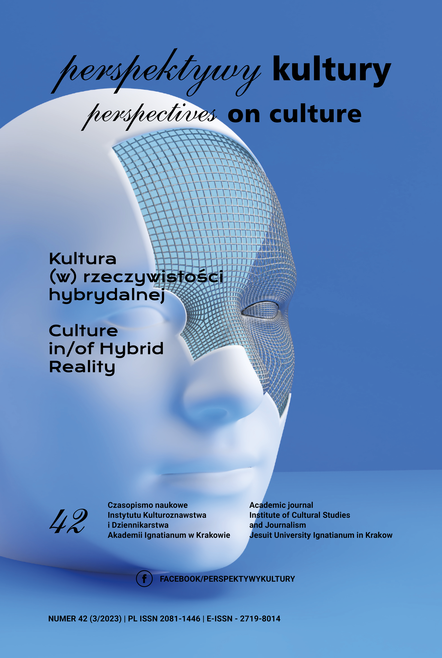 Culture (in) Hybrid Reality
Vol. 42 No. 3 (2023)
Culture (in) Hybrid Reality
Vol. 42 No. 3 (2023)The current issue of our quarterly is special for at least four organizational and administrative reasons. Firstly, the Ignatianum Academy in Cracow has become a university and as of October 1, 2023, its new name is Ignatianum University in Cracow. Secondly, the journal’s editors, moving with the times, are focusing on an online formula, abandoning the printed form and remaining in wide open access via the online Open Journal Systems platform. Thirdly, by the decision of the Minister of Education and Science announced in the Communiqué of July 17, 2023, regarding the list of academic journals and peer-reviewed materials from international conferences, the journal received 140 points. Finally, fourthly, the list of the parameterized disciplines that the journal covers, namely 1) cultural and religious studies, 2) literary studies, 3) history, and 4) management and quality sciences has been expanded to include other disciplines, such as 5) ethnology and cultural anthropology, 6) philosophy, 7) linguistics, 8) art sciences, 9) Polish studies, 10) political and administrative sciences, 11) social communication and media sciences, and 12) education studies.
-
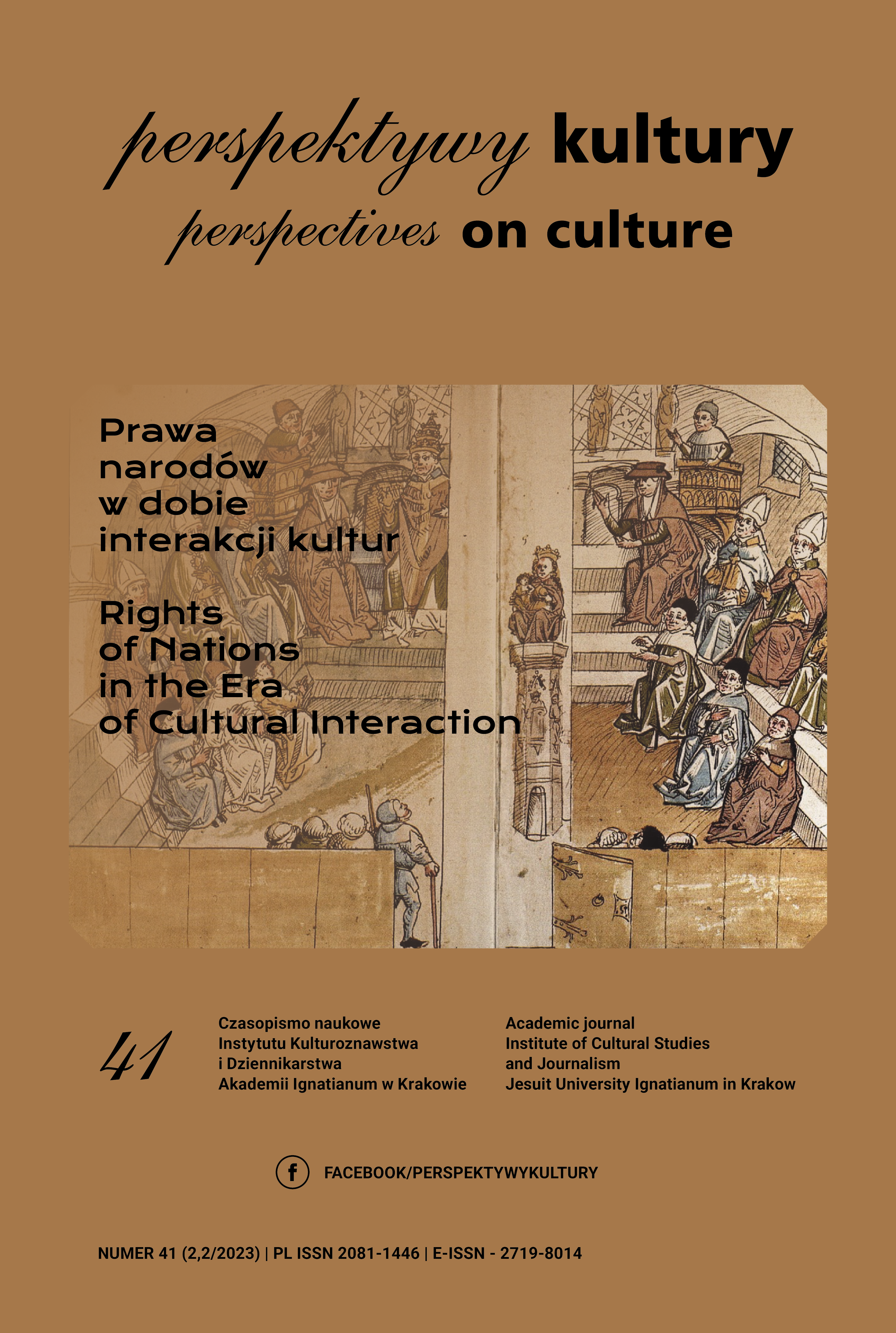 Rights of Nations in the Era of Cultural Interaction
Vol. 41 No. 2/2 (2023)
Rights of Nations in the Era of Cultural Interaction
Vol. 41 No. 2/2 (2023)This issue of the journal is related to the contemporary topical issue of the rights of peoples in the era of cultural interaction. The assembly and editing of texts related to the aforementioned issues was undertaken by Professor of the Jagiellonian University, Leszek Korporowicz, PhD, a long-time collaborator of the Jesuit University Ignatianum in Cracow, including in the Social Dictionaries project, where, together with Dr. Łukasz Burkiewicz and Dr. Agnieszka Knap-Stefaniuk, he became co-editor of the Studia kulturowe collection (Krakow 2022). The leading issue in this journal will be presented in an introduction prepared by Prof. Korporowicz. I would like to mention that in this section there are seventeen texts written by authors from various scientific centers in Poland.
-
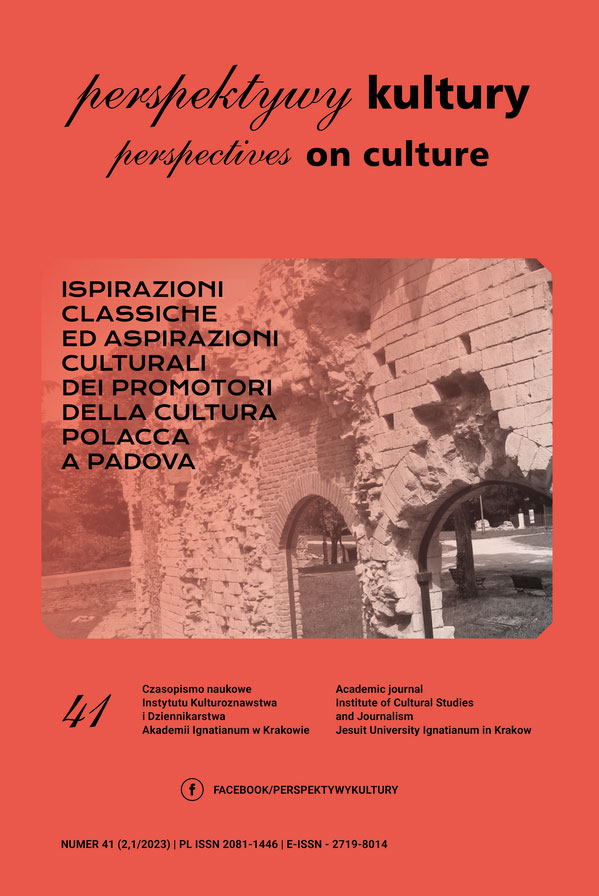 Klasyczne inspiracje i kulturowe aspiracje promotorów kultury polskiej w Padwie
Vol. 41 No. 2/1 (2023)
Klasyczne inspiracje i kulturowe aspiracje promotorów kultury polskiej w Padwie
Vol. 41 No. 2/1 (2023)The year 2022 marked the 800th anniversary of the establishment of the University of Padua, one that Poles have eagerly chosen as the site of their education since its founding, and one of Europe’s finest intellectual centers of the humanist era. For many years, Polish researchers have pointed out the importance of the university to our country, its culture, science and comprehensive development. The Polish elite of the 15th, 16th and early 17th centuries, including Paweł Włodkowic, Nicolaus Copernicus, Jan Kochanowski and Jan Zamoyski were educated in Padua, but these are just some of the many Polish names associated with the university. In view of the significant importance of the “Paduans” for Polish culture, we have decided to devote the theme section of this issue of Perspectives on Culture to the classical inspirations and cultural aspirations of the promoters of Polish culture in Padua, and to place it under the editorship of Prof. Dr. hab. Mirosław Lenart and Dr. Sławomir Marchel from the University of Opole. His Magnificence Father Rector of the Jesuit University Ignatianum in Cracow, Fr. Dr. Tomasz Homa SJ, AIK Professor, also included his introductory word in the issue.
-
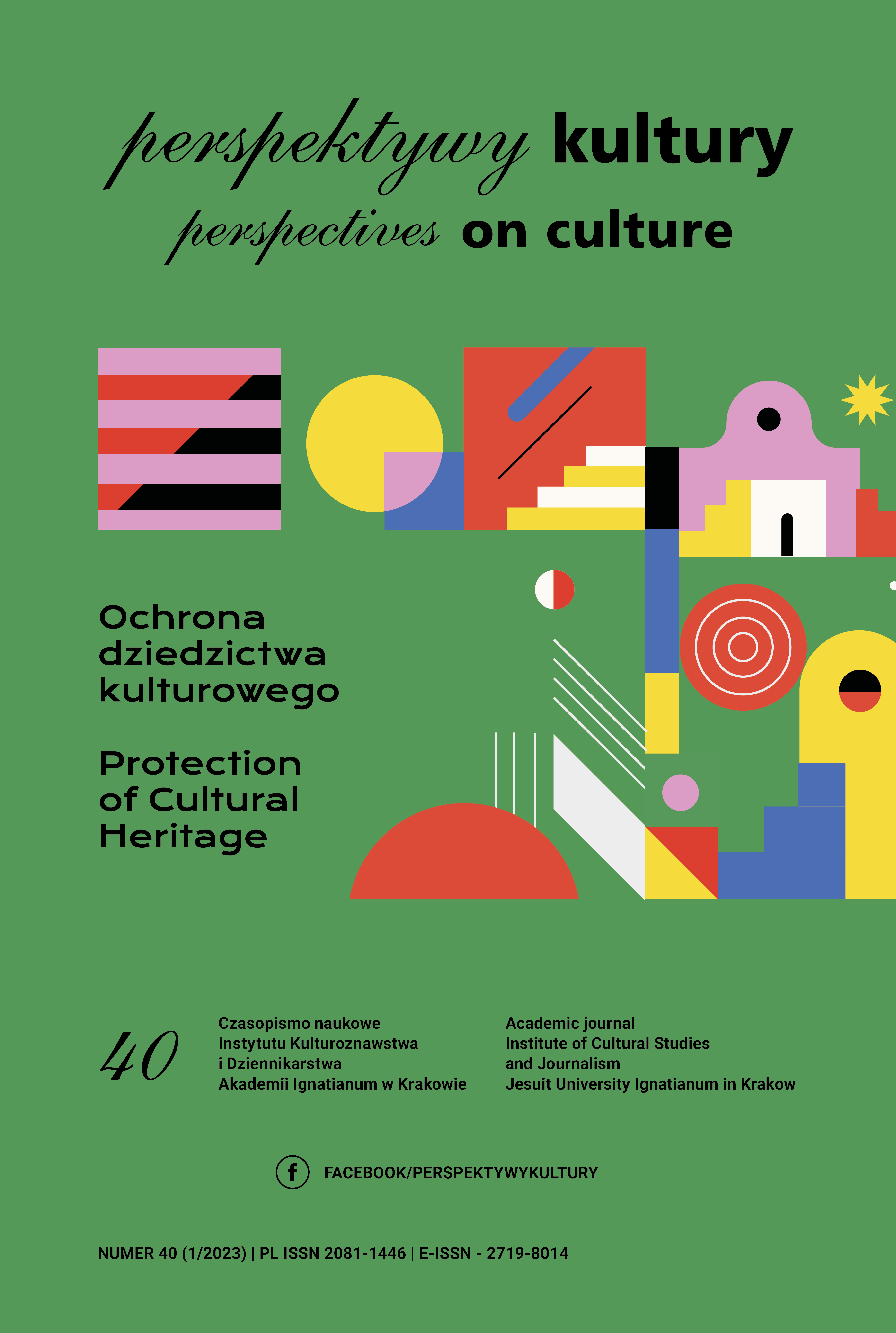 Protection of Cultural Heritage
Vol. 40 No. 1 (2023)
Protection of Cultural Heritage
Vol. 40 No. 1 (2023)The leading topic of this issue is the thematic section Protection of Cultural Heritage under the guest editorship of Prof. AIK Justyna Łukaszewska-Haberkowa, PhD. The section includes eight texts written by authors from various academic centers and cultural institutions in Poland.
-
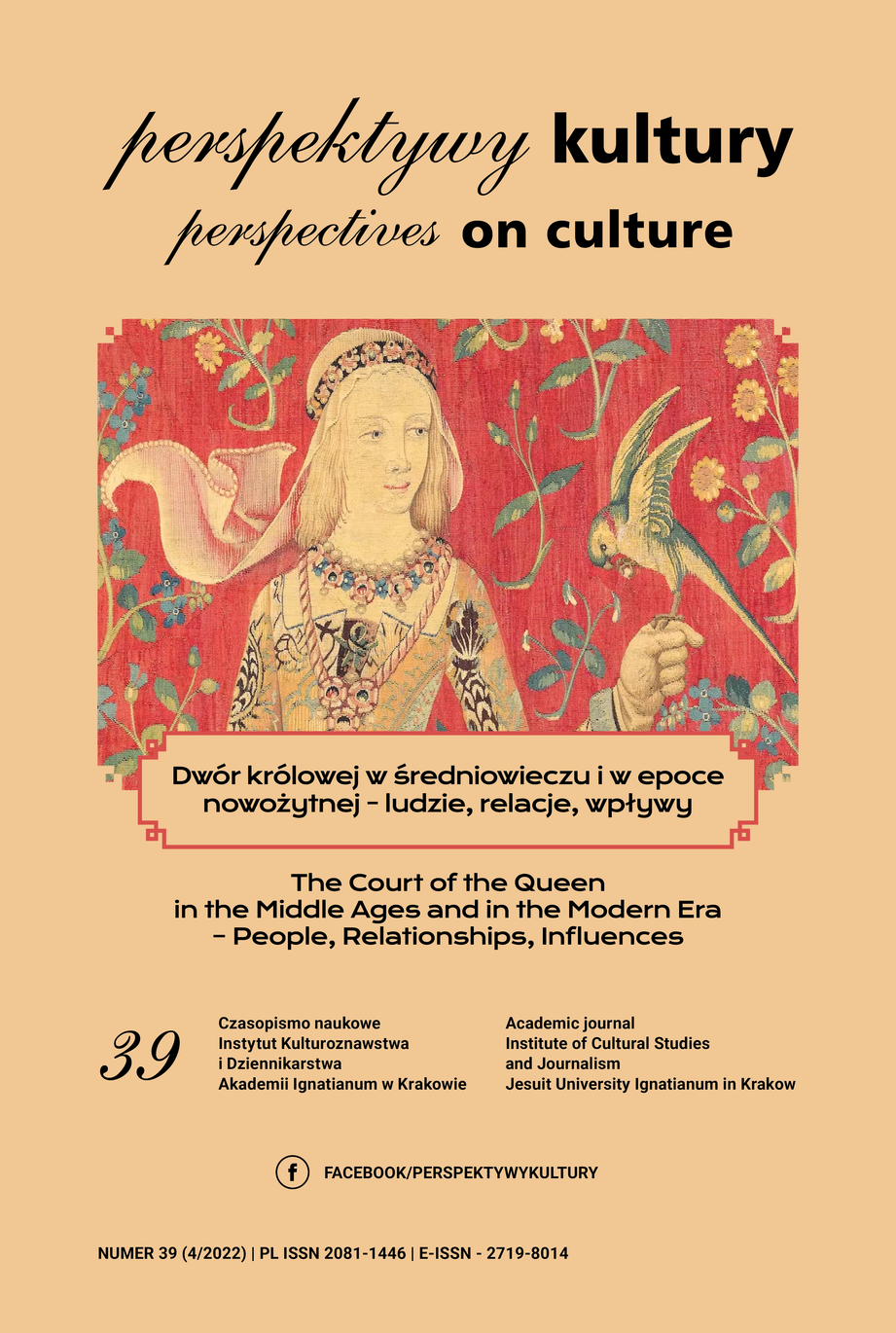 The Court of the Queen in the Middle Ages and in the Modern Era - People, Relations, Influence
Vol. 39 No. 4 (2022)
The Court of the Queen in the Middle Ages and in the Modern Era - People, Relations, Influence
Vol. 39 No. 4 (2022)The main theme section of this issue under the guest editorship of Prof. Agnieszka Januszek-Sieradzka, PhD, has been titled “The Court of the Queen in the Middle Ages and in the Modern Era – People, Relationships, Influences.” This section is presented in the introduction by the Professor herself. Let me add that the section contains nine articles written by authors from various research centers in Poland.
-
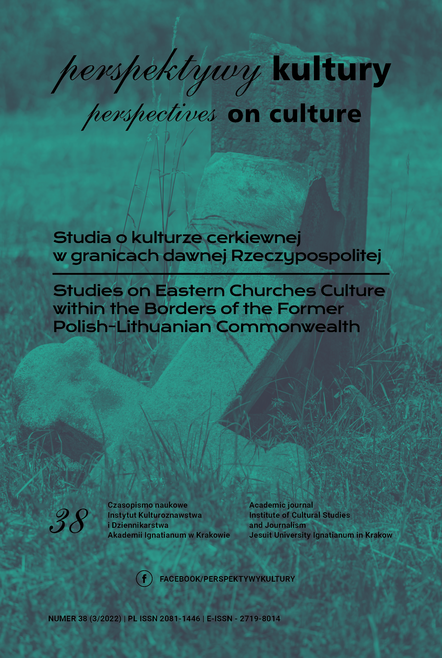 Studies on Eastern Churches Culture within the Borders of the Former Polish‑Lithuanian Commonwealth
Vol. 38 No. 3 (2022)
Studies on Eastern Churches Culture within the Borders of the Former Polish‑Lithuanian Commonwealth
Vol. 38 No. 3 (2022)The current issue is larger than the typical issues of Perspectives on Culture. This is primarily related to the theme section, Studies on Eastern Churches Culture within the Borders of the Former Polish-Lithuanian Commonwealth, under the guest editorship of staff members of the Department of Polish-Ukrainian Studies at the Faculty of International and Political Studies of the Jagiellonian University: Associate Prof. Alicja Zofia Nowak, PhD, Professor of the Jagiellonian University, and Associate Prof. Agnieszka Gronek, PhD, Professor of the Jagiellonian University. This section is presented in the Editorial written by the two Professors, and is a continuation of their previous projects on similar topics (2016 and 2019 monograph editions). I would only add that it contains 19 articles written by authors from Poland, Ukraine, Belarus, Germany, France and Italy. The section is also complemented by two articles. The first is a short communiqué by Archbishop Ihor Isichenko (V.N. Karazin Kharkiv National University, National University of Kyiv-Mohyla Academy) presenting Kharkiv, and more precisely, Kharkiv churches in the first weeks of the Russian invasion of Ukraine. The other one is a review of Oleh Bolyuk’s book Wooden sacred artifacts (as based on Ukraine’s western regions) by Agnieszka Gronek (Jagiellonian University).
-
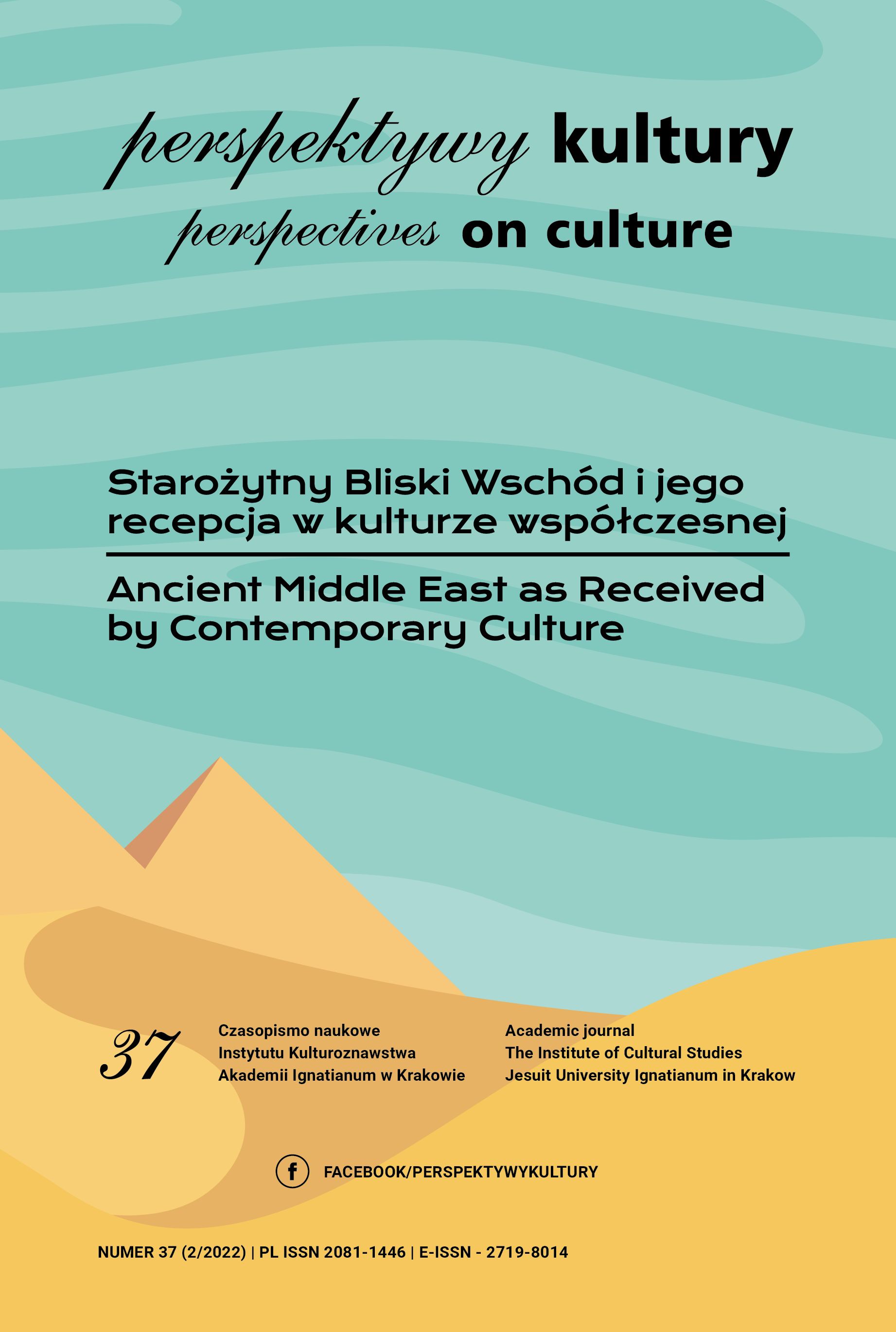 Ancient Middle East as Received by Contemporary Culture
Vol. 37 No. 2 (2022)
Ancient Middle East as Received by Contemporary Culture
Vol. 37 No. 2 (2022)An examination of the meanders of how the heritage of antiquity is received in contemporaneity is usually associated with the legacy of Greek and Roman culture. In the current issue, we propose a slightly different perspec- tive – on the interesting and intriguing themes drawing from the achieve- ments of cultures of the ancient East, primarily Egypt. This thread appears in the articles of the theme section of this issue of Perspectives on Culture.
-
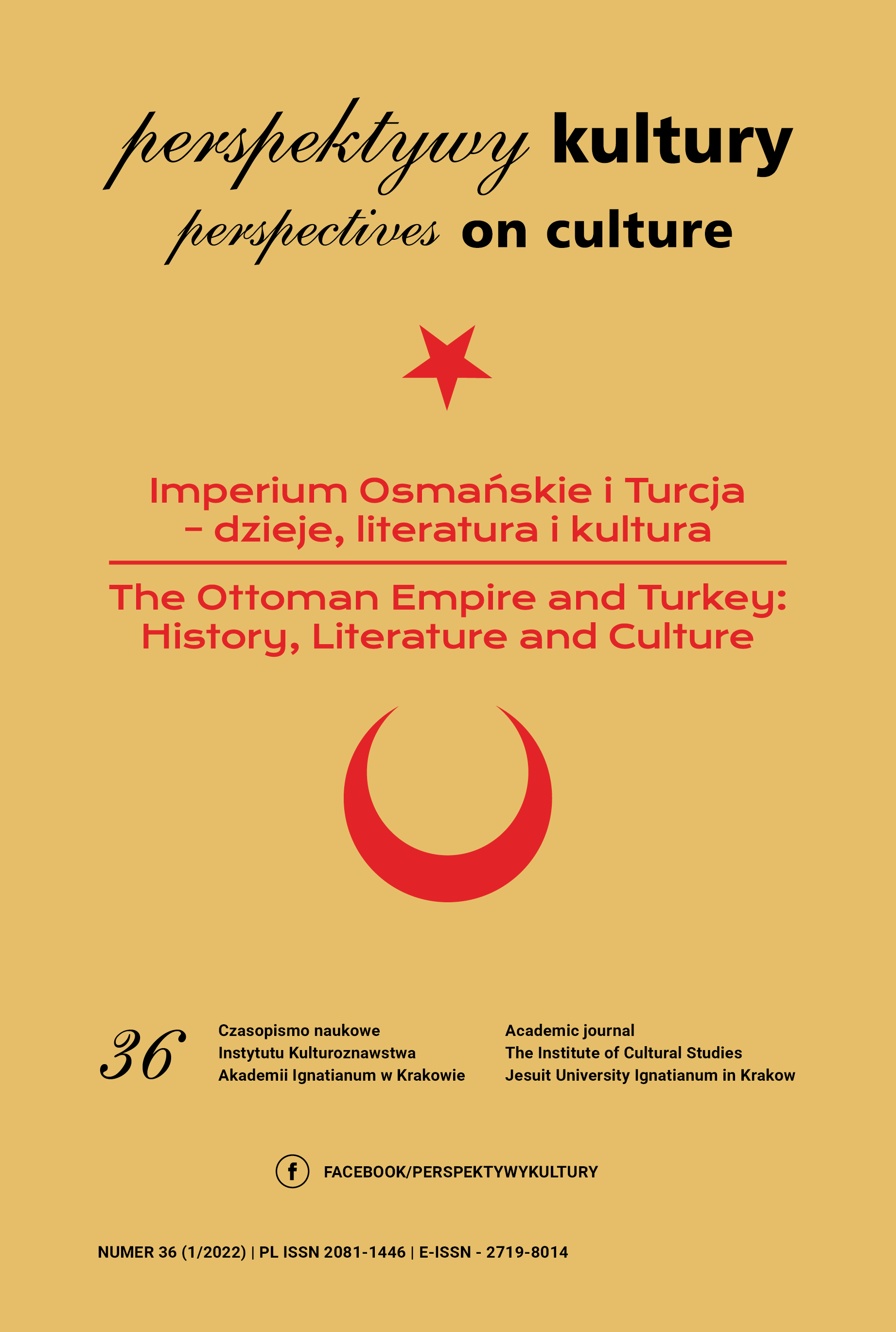 The Ottoman Empire and Turkey: History, Literature and Culture
Vol. 36 No. 1 (2022)
The Ottoman Empire and Turkey: History, Literature and Culture
Vol. 36 No. 1 (2022)29 października 1923 roku Mustafa Kemal, zwany później Atatürkiem, zadeklarował utworzenie Republiki Turcji. Rok wcześniej został zniesiony sułtanat. W ten sposób Turcja jako państwo zaistniało dopiero w XX wieku, ale zostało wykreowane z kulturowej osmańskiej rzeczywistości i tradycji, która funkcjonowała w basenie śródziemnomorskim przez 700 lat. Pomimo że współcześni mieszkańcy Turcji mają swoje korzenie w koczowniczych plemionach tureckich z centralnej Azji, a języki tureckie są dziś rozpowszechnione po Uzbekistan i Kazachstan, sam naród turecki został ukształtowany w wyniku wzajemnej infiltracji dwóch cywilizacji – śródziemnomorskiej Europy i bliskowschodniego muzułmańskiego Orientu. Czy zatem możemy zadać dzisiaj pytanie, czy historyczne imperium osmańskie i dzisiejsza Turcja to dwa różne cywilizacyjnie światy (Jerzy S. Łątka)? To jedno z wielu pytań, które może się pojawić w trakcie dyskusji nad tematem przewodnim. Redakcja „Perspektyw Kultury” zaprasza badaczy historii o kultury Turcji do nadsyłania różnorodnych tekstów związanych z rocznicowym zagadnieniem, licząc również na teksty dotykające zagadnień mało znanych, jak na przykład działalność Osmanów na Oceanie Indyjskim w XVI wieku.
-
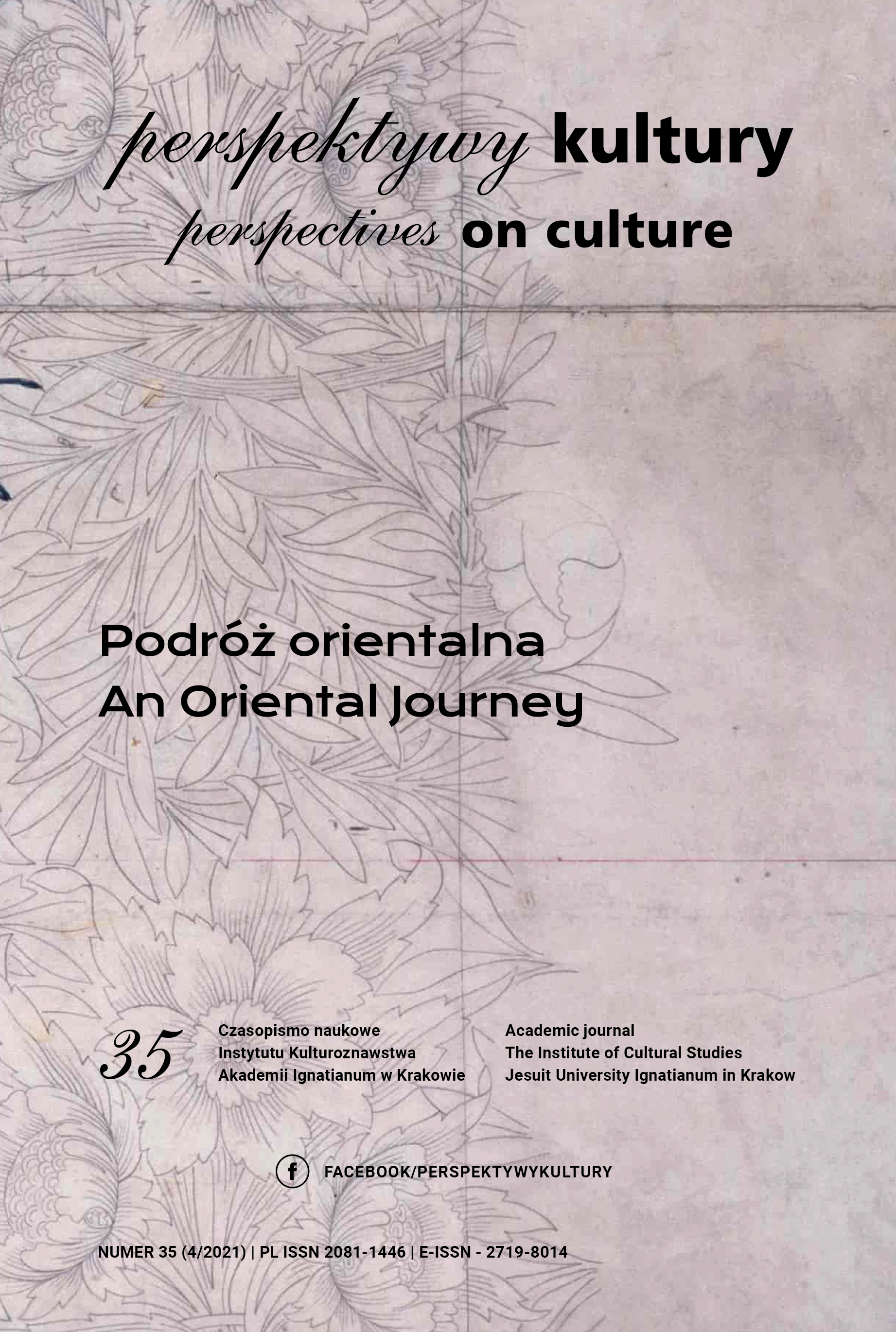 An Oriental Journey
Vol. 35 No. 4 (2021)
An Oriental Journey
Vol. 35 No. 4 (2021)The announcement of the Minister of Education and Science dated December 21, 2021 on the amendment and correction of the announcement on the list of scientific journals and peer-reviewed materials from international conferences brought joyful news for the Editorial Board, Readers, and Friends of Perspectives on Culture. We have received 100 points in the new ranking of the Ministry.
-
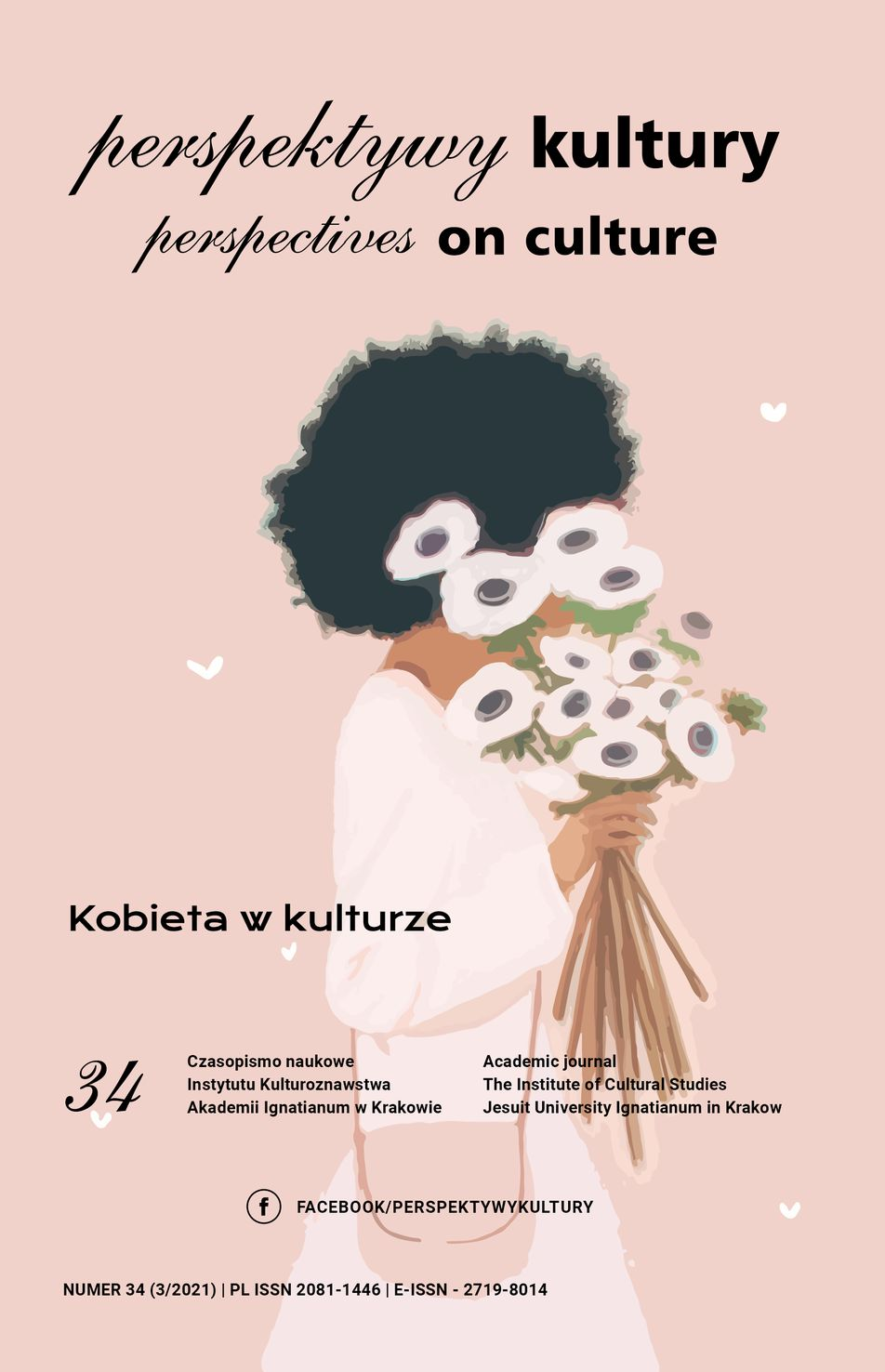 Women in Culture
Vol. 34 No. 3 (2021)
Women in Culture
Vol. 34 No. 3 (2021)The late 1960s and early 1970s development of liberation discourses (postcolonial, racial, ethnic, gender, environmental, etc.) resulted in them turning not only and not so much into an intellectual strategy, but instead, in their entering culture as social practices, and becoming the main patterns of behavior and models of thinking. In this context, the feminist discourse, which initially developed as a political and legal narrative of the struggle for women’s rights, unfortunately became a world view and even an ideological discourse of opposition and competition between the sexes as it spread.




